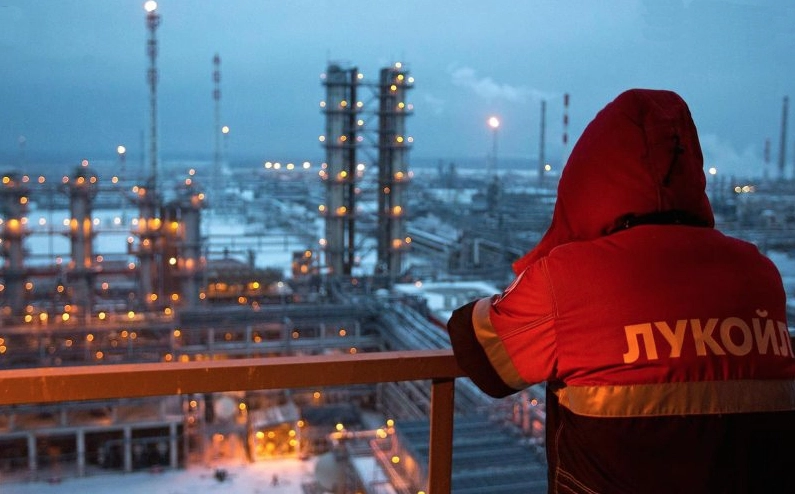The global temperature is expected to rise, supposedly, between the years 2030 and 2052 by one and a half degrees Celsius above the pre-industrial era, which would mark a red line for the sustainability of the planet. This is asserted by experts in the latest report of the Intergovernmental Panel on Climate Change (IPCC), which specifies that, if we don’t act immediately, the consequences won’t only be catastrophic, but irreversible. Therefore, if the window of opportunity is closing for humanity, the actions of the world’s leaders are only accelerating the debacle.
A few days before the report was issued, Russia began its invasion of Ukraine, which is a conflict largely shaped by the geopolitics of oil and which implies a reversal, in the short term, of some of the progress that has been achieved. It isn’t clear, however, to what extent the war will affect the energy transition. Let’s remember that Russia supplies more than 40% of the natural gas used in Europe, which speaks of the magnitude of the conflict.
Surely, Vladimir Putin’s actions imply a great boost to the global oil and gas industry in the short term, considering the need to fill the vacuum of Russian hydrocarbons after the sanctions. But in the medium to long term, the war will likely accelerate Brussel’s plans to accelerate the plans for the green transition.
According to Frans Timmermans, Commissioner for the European Union’s Green Deal, the bloc can increase imports of liquefied gas, advance toward clean-energy generation, and apply efficiency measures to electricity consumption. Some experts agree with this optimistic view, even if they acknowledge a short-term time lag.
The conflict has also prompted a sharp increase in the price of fossil fuels, which is clearly exorbitant, and which has extraordinarily benefited the industry. These prices incentivize more hydrocarbon exploration, which, in turn, could delay compliance with the recently committed net-zero emissions targets. The conflict also generated a slump in the European carbon-permits market.
Beyond the extraordinary profits, on both sides of the Atlantic there are calls for taxing the windfall revenues from the surge in energy prices. Greenpeace is actively campaigning for their imposition, a view that is shared by the U.K. Labor leader Keir Starmer and by the U.S. Democratic Senator Elizabeth Warren.
However, the faster the attempt to exit the Russian supply, the greater the increase in both emissions and economic costs, said the International Energy Agency (IEA). Thus, the possibility of taxing extraordinary rents would allow governments to appropriate foreign currency and use it to finance the transition, as well as to subsidize household and business consumption. For the EU in particular, this could quickly reduce its dependence on Russian gas.
Moving forward with the transition is a political fact and, as Germany’s Finance Minister, Christian Lindner, said, “clean energy is the energy of freedom”. Almost half of mankind is vulnerable to climate change and if the current pattern continues and the climate crisis worsens, the costs of maintaining the safety and health of the population will become prohibitive. Furthermore, the impact won’t necessarily affect everyone equally as some regions are more vulnerable than others and certain sectors of the population will be more exposed. Vulnerability hides the deep inequality that characterizes our societies.
The IPCC report, in which some 270 scientists from 67 countries participated, recognizes the interdependence of climate, ecosystems, and biodiversity, as well as society, while it adopts an integrating vision that considers the human being and its interrelationship with nature. If the increase in the average temperature continues, many areas of our planet will become uninhabitable and adaptation won’t only become more costly, but may even become unfeasible. In fact, if the average temperature continues to rise, 8% of the current productive land will become unsuitable for cultivation, putting food security at the top of the agenda.
The report also highlights that climate change is a political problem, whose solution requires a fair and united approach. And it is political when we observe that the cost of inaction is more expensive than initiating the transition. This has been historically highlighted by the scientific community and is now beginning to gain adherents among policy makers. Unfortunately, those who have the most are not willing to give in and, in the end, the transition is delayed. If the current trend continues, not only will there be more deaths or increased hunger, as the report highlights, but the level of conflict will also be amplified.
Those in Latin America who are betting on fossil fuels should take a strategic view of the conflict and look at the long-term consequences it may generate. Making investment decisions based on current prices may be of little use, as the transition will have progressed further and international demand will lose momentum by the time the projects in the pipeline finally mature. This doesn’t imply ignoring the possibilities that could arise in the immediate future. However, it does mean that the tragedy shouldn’t cover the urgent.
Translated from Spanish to English by Ricardo Aceves












